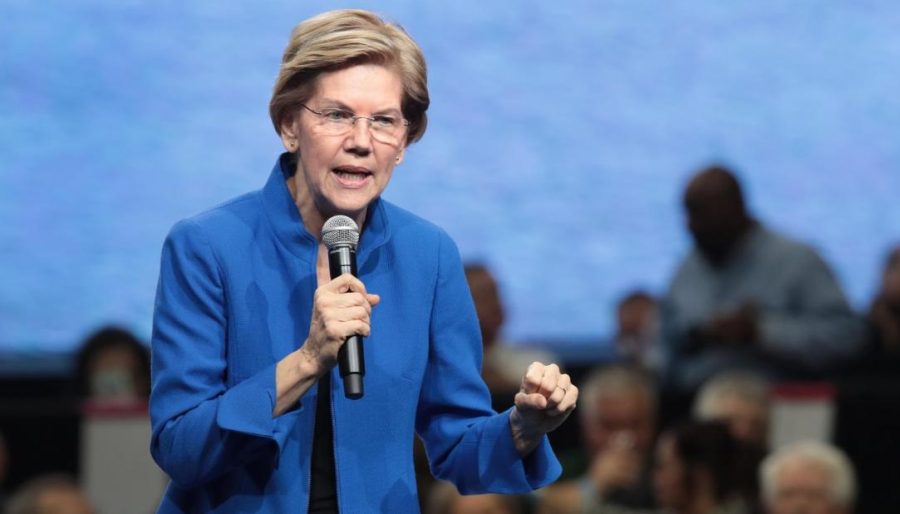The Wealth Tax is Worth the Price
America is struggling with an existential crisis of sorts. It is one that threatens our democracy, our liberty and our very way of life. I am not talking about gun violence, climate change or a threat from abroad. Rather, the imminent threat is plutocracy: the concentration of wealth and power in the hands of a few ultra-wealthy Americans.
In October, Forbes announced that the wealth of the 400 wealthiest Americans had reached an all-time high of $2.96 trillion. The wealthiest, Jeff Bezos, was worth $114 billion, a net worth which had fallen from a high of $160 billion last year, due to a divorce settlement. In total, there were 621 billionaires in the United States.
As the wealth of these Americans at the very top continues to grow, they gain the resources necessary to influence political campaigns, lobby for favorable legislation and exercise control over our political system.
While Americans usually assume billionaires pay immense sums in taxes, the tax rate for the 400 richest Americans was 23% in 2018, compared to the average American’s 28%.
After decades of tax cuts, America now has a regressive tax system, where the share of wealth paid in taxes decreases as one’s wealth grows. This is not the norm for modern American history, and from 1944 to 1981, the top marginal rate was 81%.
This changed in the 1980s, when policymakers began to embrace the assumption that cutting taxes for the wealthiest Americans would cause that new income to transfer to the middle and working classes — an idea known as “trickle-down economics.” Yet this policy failed to accomplish its desired effect.
While incomes for average Americans had grown by 2.2% annually from 1950 to 1980, since 1980 this growth has slowed dramatically to 1.2% per year.
Presidents have nonetheless continued to cut taxes for the rich dramatically, and this came to a head in 2017, when Trump’s cuts created a regressive tax system. This has created an America in which the top 0.1% of Americans control about 20% of the country’s wealth.
Such a discrepancy must be corrected, and, indeed, several candidates for the Democratic presidential nomination have announced their intentions to do so.
Most attention has been paid to U.S. Sen. Elizabeth Warren’s plan, which would tax household wealth above $50 million 2% and household wealth above $1 billion 6% in order to fund generous social programs. It has also raised concerns among billionaires, many of whom see it as a direct threat.
Bill Gates, who is worth $106 billion, was one of the most vocal about his reservations, complaining that he would pay $100 billion in taxes. While this is technically correct — he would pay about $6.3 billion during the first year, with yearly payments eventually totaling about $100 billion in 15 years — it ignores the fact that Gates’ wealth could continue to grow by $25 billion, even after the tax is applied. In the end, Gates would be faced with the tragedy of having his fortune rise to a mere $131 billion over the next 15 years.
Gates is not the only billionaire who has criticized Warren over her tax proposal. Among the most hostile was Leon Cooperman, an investor, who accused Warren of encouraging the “vilification” of billionaires like himself.
Another billionaire, Mark Cuban, accused Warren of trying to hide her own $12 million fortune. Meanwhile, several extremely wealthy Democratic donors have threatened to support the Republicans in 2020 if Warren is nominated.
Despite these claims, America is facing the possibility of becoming a plutocracy, where an extremely small amount of its citizens own the majority of its wealth. We must do something to correct this imbalance, and tax plans like Warren’s are the fairest way to do this.
The notion suggested by many billionaires in reaction to her plan — that it is an unjust and unwarranted seizure of their wealth — is ridiculous. Most of these billionaires will still be left with immense fortunes, the size of which most Americans cannot comprehend. In return, average Americans will once again be allowed to enjoy the fruits of their labor.
Furthermore, I would urge wealthy Americans to read up on past examples of times when past plutocratic systems were inevitably overthrown due to their excesses.
America’s current wealth inequality is a long way from reaching such a boiling point. But that may not necessarily be the case in a few decades if policies do not change.
Collin Bonnell, FCRH ’21, is a history major from Hingham, Mass.










































































































































































































